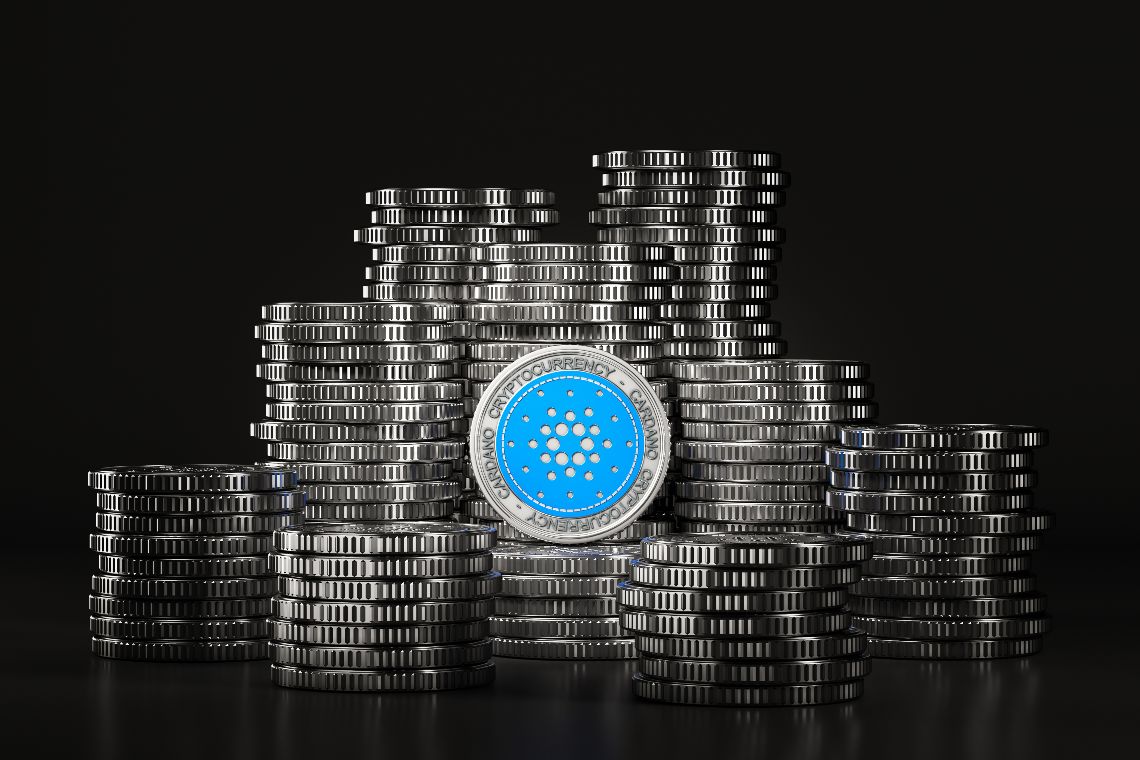This week’s guest on the Cardano SPO Column is a mission driven pool doing their bit for Cardano decentralization, and paying it forward along the way by donating to charities: DenAdaPool [DEN].
Last week’s guest was a purpose-driven stake pool with several charity projects in developing countries.
This initiative is a point of reference for everything Cardano and every week or two we will invite a Stake Pool Operator (SPO) to answer some questions and give us an update directly from within the Cardano community.
Considering that many of our readers are new to the crypto space, we will have a mix of simple and technical questions.
Hello, thanks for being here. Please introduce yourself, tell us where you are based and what’s your background.
Greetings, and thanks for having us! My name is Al and I run the DENada Cardano stakepool (ticker: DEN) out of Perth in sunny Western Australia. I work as an Optometrist helping to improve, and in some cases, save the sight of patients that come to see us. My interest in IT and programming led me to develop applications specifically targeting operators in my industry. I’ve done full stack web development over the last 10 years, and currently also run a small SaaS business serving customers in my field. The potential applications of blockchain in the medical field are exciting, and with smart contracts on the horizon, Cardano is well placed to underpin that innovation.
What is it about Cardano that has captivated you, and what has motivated you to become an SPO?
During the last bull run in 2017/18, Cardano stood out to me as the only platform that was looking to get things right from the start instead of rushing functionality to market. The scientifically researched and peer reviewed approach really struck a chord with me, and as an early investor I have been following their progress with interest. Frankly, that has turned to admiration as their roadmap has slowly come to fruition. We’re about to reach some major milestones with the upcoming smart contract functionality. Also, the fact that the network is now effectively run by the stakepools, brings us closer to the goal of true decentralisation and self-determination for the masses. That’s what it’s all about!
As an investor, I wanted to support expansion of the network and decided to leverage my experience with Linux and in developing/running/hosting SaaS web applications. I also knew other investors who had decent holdings of ADA, but were leaving them languishing on an exchange. So we set out to put those holdings to work and earn passive income while contributing to the decentralisation of the network. The fact that holders can earn returns which put a lot of western banks savings rates in the shade on an annualised basis, makes Cardano a really worthwhile platform to support.
People often buy cryptocurrencies and leave them on exchanges, what are the drawbacks of doing so? And what are the pros of storing them in a non-custodial wallet?
A lot of investors buy cryptocurrencies for speculative reasons and are simply not aware of the opportunity to earn passive income while investing. So holdings get left on exchanges due to lack of knowledge in most cases. Publications like this are helping to educate investors. Some major drawbacks of leaving your ADA on an exchange are the following:
- Physical ownership – ’Not your keys, not your crypto’. You do not have physical ownership of the ADA in a custodial wallet.
- Security – Although security on exchanges is a top priority, they CAN and HAVE been hacked in the past.
- Use of your holdings – No exchange has yet published information on if/how holdings are used by the exchange when not actively staked by the holder.
- Locked holdings – your ADA are locked on the exchange while staking with them, and you are often heavily penalised for early withdrawal.
- Withdrawal blocking – there are regular reports of holders not being able to withdraw their ADA from exchanges at certain times.
The only significant reason to leave ADA on an exchange is if you are an active trader.
In the case of Cardano, there’s also the staking mechanism. Exchanges like Binance offer interesting percentages for staking with them, so why should users choose to stake from their proprietary wallets?
Exchanges are an important and necessary part of the ecosystem, and a big shout out goes to Bitrue which has recently become the first exchange to stake with a community pool. However, if you do some homework and crunch the numbers on Binance and other exchange pools, you’ll notice that they earn the same 5 to 5.5% APY as most other Cardano stakepools. Despite this, some of these exchanges offer inflated rates to attract delegators. There is a lack of transparency around if/how holdings, which are not actively staked (i.e. by consent), are used by the exchanges, so we can only speculate on where these returns are coming from. Exchanges are certainly not charities. What is clear is that those higher returns are not sustainable as the network simply doesn’t provide them, so leaving your ADA on the exchange after these initial returns could cost the holder dearly in the long run.
If the goal is true decentralisation, then having large portions of the stake on exchanges could be truly detrimental. For example, Binance currently controls 12.44% of all staked ADA. The only real solution is for future governance in Cardano (which you can vote on as a holder) to enforce separation of exchanges and their participation in the proof of stake mechanism, or for ADA holders to take control and stake independently. You can move your holdings into your own wallet and earn safe, consistent returns. Power to the people!
Thank you for the contribution. Any last comments? How can people get in touch?
We love and live everything Cardano… so we’re doing our bit for decentralisation of a platform we believe is going to change the world for the better. We’re also paying it forward, and donate 10% of all operator fees to deserving charities or projects in our community. As a father with young children, the health of the next generation is a cause close to our family’s heart. So we’re currently supporting the Perth Childrens’ Hospital Foundation (https://pchf.org.au/) with donations whenever blocks are minted. Everybody wants to change the world, but real change can also be fostered at a grassroots level in our own communities.
Remember that the experts in anything were once beginners too! The Cardano Community is what sets us apart from other cryptocurrencies, and there are many SPOs who are happy to help with any questions. We can be contacted on our Twitter and Telegram channels, and we post relative content on our YouTube channel. We’re here to help!
Disclaimer: The opinions and views of the SPOs are their own and do not necessarily reflect those of the Cardano Foundation or IOHK.




